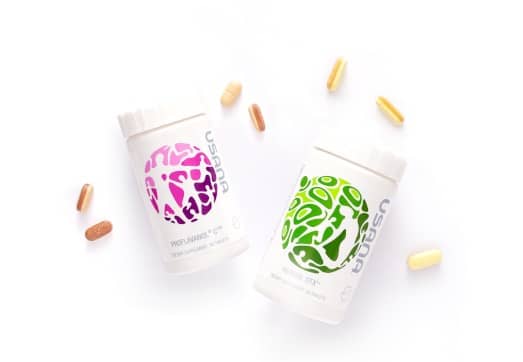Usana is one of the biggest health and wellness companies offering a huge line of products across categories like personal care, supplements and weight loss. While this brand gets mixed reviews from health and wellness experts, plant-based dieters may wonder whether they should give these hyped products a try.
So, is Usana plant based? No, most Usana products are not suitable for plant-based diets. The ingredients in Usana products come from different sources some of which are plant-based while others are synthetically produced. Most Usana products are formulated using synthetic supplements and synthetically processed ingredients.

Below, let us try to understand whether it is possible to find any plant-based substitute for Usana products.
Top 3 Usana Substitutes For A Plant Based Diet
While Usana markets its products to be suitable for a plant-based or animal-free diet, it does not make a good choice for a whole food diet because most of its ingredients are synthetic nutrients. The main ingredients in the products, namely soy protein, whey protein and more, are synthetically extracted and processed, making the products far from being plant-based.
The best alternative to Usana for those who follow a plant-based diet is to adopt a healthy, balanced diet that includes rich sources of vitamins and minerals. Natural whole foods like fruits and vegetables provide the body a variety of minerals, vitamins, fiber, fatty acids and antioxidants that help manage weight and reduce the risks of health problems while boosting stamina and well-being.
Fruits and Vegetables
Including a variety of fruits and vegetables in your daily diet is one of the best things you can do to stay healthy and fit. These foods contain antioxidants, vitamins, minerals and fiber known to deliver a plethora of health benefits, making an excellent alternative to a health supplement like Usana.
A higher fruit and vegetable consumption is associated with a reduced risk of cancer, heart disease, arthritis, diabetes and other problems. Daily intake of fruits and vegetables also improves sugar control and reduces oxidative stress.
Nuts and Seeds
Nuts and seeds make up a significant part of a healthy plant-based diet, helping you get your daily recommended intake of protein and healthy fats. They boost your health by offering several key nutrients and reducing the risk of diseases. They are an excellent source of antioxidants, healthy fats and essential minerals.
With a high amount of dietary fiber, nuts and seeds promote digestive health to boost metabolism and aid in weight loss, keeping you energized all day. They are also rich in healthy fats and amino acids responsible for anti-aging and disease prevention. Try to include a variety of nuts and seeds like walnuts, almonds, flax seeds, pistachios and more in your everyday diet to get all the nutrients and health benefits.
Whole Grains
Whole grains are the most important constituents of everyday diet for those who follow a plant-based lifestyle. Foods made out of wheat, oats, brown rice, barley, quinoa, sorghum and other grains are considered to be whole grain and are rich in nutrients like B vitamins, protein and fiber. They also contain high amounts of minerals like selenium, magnesium and iron.
Consumption of whole grains in the daily diet reduces the risks of diseases like stroke, obesity, diabetes and heart problems. The fiber in these foods supports healthy digestion and prevents constipation and digestive issues. They also reduce the risk of cancer, chronic inflammation and premature death.
Most Popular Questions: